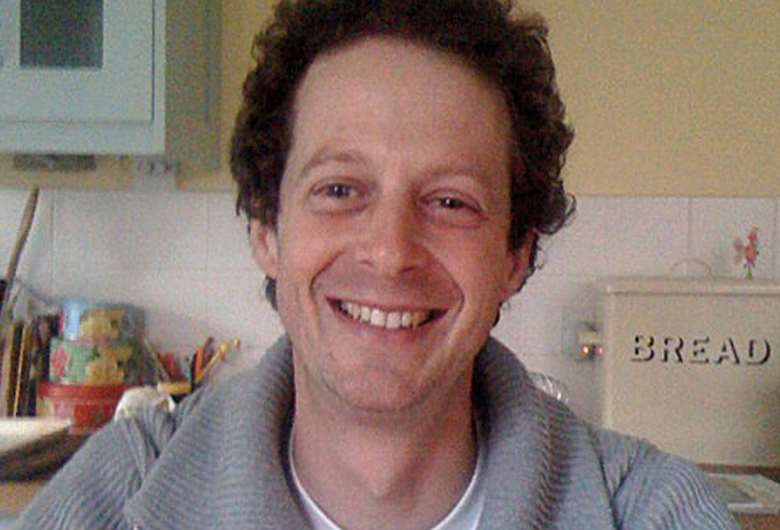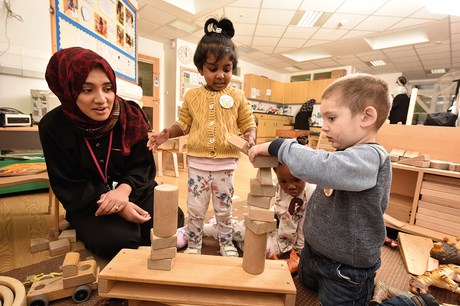Early Years in School: Opinion - Game up
Dr Julian Grenier
Monday, January 23, 2017
Improving the quality of assessment information while reducing the quantity of it will result in better provision, says Dr Julian Grenier

The Government’s decision to scrap the unreliable, time-consuming and expensive baseline assessment scheme for Reception classes was widely welcomed, as was its decision to retain the Early Years Foundation Stage Profile. As there are no further planned changes to the system, surely this is an ideal time for us to reconsider some of our practice in the early years.
Assessment in the early years should be principled and responsible: it should promote the best interests of children. The Statutory Framework for the EYFS promotes a play-based approach to early education with a focus on the Characteristics of Effective Learning – and so should our systems for assessment. We should call time on some of the more unsavoury practices in early years assessment which take place in schools.
FIRST…
We need to stop playing games with the assessment system. Children’s attainment on entry is still, in far too many cases, artificially depressed. Schools all over the country – even those in affluent areas – continue to report that on entry, children’s levels of development are below the expected levels.
It cannot be true that the development of more or less every child in England is below the level expected for their age. Depressing assessment levels on entry – whether children start in nursery or Reception – makes it easier for schools to show their ‘value added’. But it also has a corrosive effect: it lowers expectations.
When I recently heard that a school leader had asked staff to be less generous in their assessments so that the children had ‘room to grow’, it struck me that those children were unlikely to get the sort of challenging provision they need in order to become more engaged, creative and persistent learners.
SECONDLY…
We should consider how we might refocus our practice in the early years so that we develop higher-quality, more in-depth assessment. That means discouraging the tick-lists and the impulsive grabs for the iPad to photograph every little thing every child achieves. Each time practitioners focus on recording what children can do ‘for evidence’, they lose time to interact with children, encourage their efforts or develop their thinking.
There is no value in recording assessment for its own sake: what makes a difference is giving children attention, time and the teaching and provision they need. The endless recording of every child’s progress against every single descriptor in Development Matters is just a deadening chore.
Nancy Stewart, who co-wrote the non-statutory guidance to the Early Years Foundation Stage, has recently argued that when Development Matters is ‘used as a tick-list of descriptors of what children must achieve, it can sadly limit both children’s development and the professional awareness and skills of practitioners’. That sad limitation is happening in schools all over England. Instead, why not focus on improving the quality of assessment information while reducing the quantity? Then we could use those high-quality assessments for something useful: developing better teaching and richer provision.
THIRDLY…
The excessive focus on the levels within Development Matters is having the same negative effect as the narrow assessment of levels in Key Stages 1 and 2 had in the past. The Commission on Assessment Without Levels commented in its 2015 report that ‘levels also used a “best fit” model, which meant that a pupil could have serious gaps in their knowledge and understanding, but still be placed within the level. This meant it wasn’t always clear exactly which areas of the curriculum the child was secure in and where the gaps were.’
Assessment practices in the early years still run that risk. Two children might be given a ‘best fit’ assessment that they are working within the 30-50 month band for Number at the end of their nursery year. But each child may have a very different level of understanding, and different gaps in their knowledge. The assessment serves the purpose of summarising the child’s level and demonstrating their progress. But it fails to help the next class teacher understand what sort of planning and provision each child needs to continue their learning.
BE BOLDER
Now is the right moment for school leaders to be much bolder: to reduce the crazy quantity of assessment data, and to focus instead on improving the quality and depth of our assessment practices.
Every day, children in nursery and Reception classes show huge courage in their learning: they put something unfamiliar in their mouths and taste it, they wobble and fall off two-wheeled bikes, they try and try again to write their name or to build a tower that is higher than they are. Surely it is time for us to show the same courage in our practice, and to do the right thing for children? The ‘evidence’ we need is in the provision we organise and the rich learning that the children demonstrate, not in endless piles of observations, photos and data.
Dr Julian Grenier is head teacher of Sheringham Nursery School and Children’s Centre, London — a National Teaching School — and is a National Leader of Education.
This opinion article is from Nursery World's supplement Early Years in School, published with the 23 January issue.




